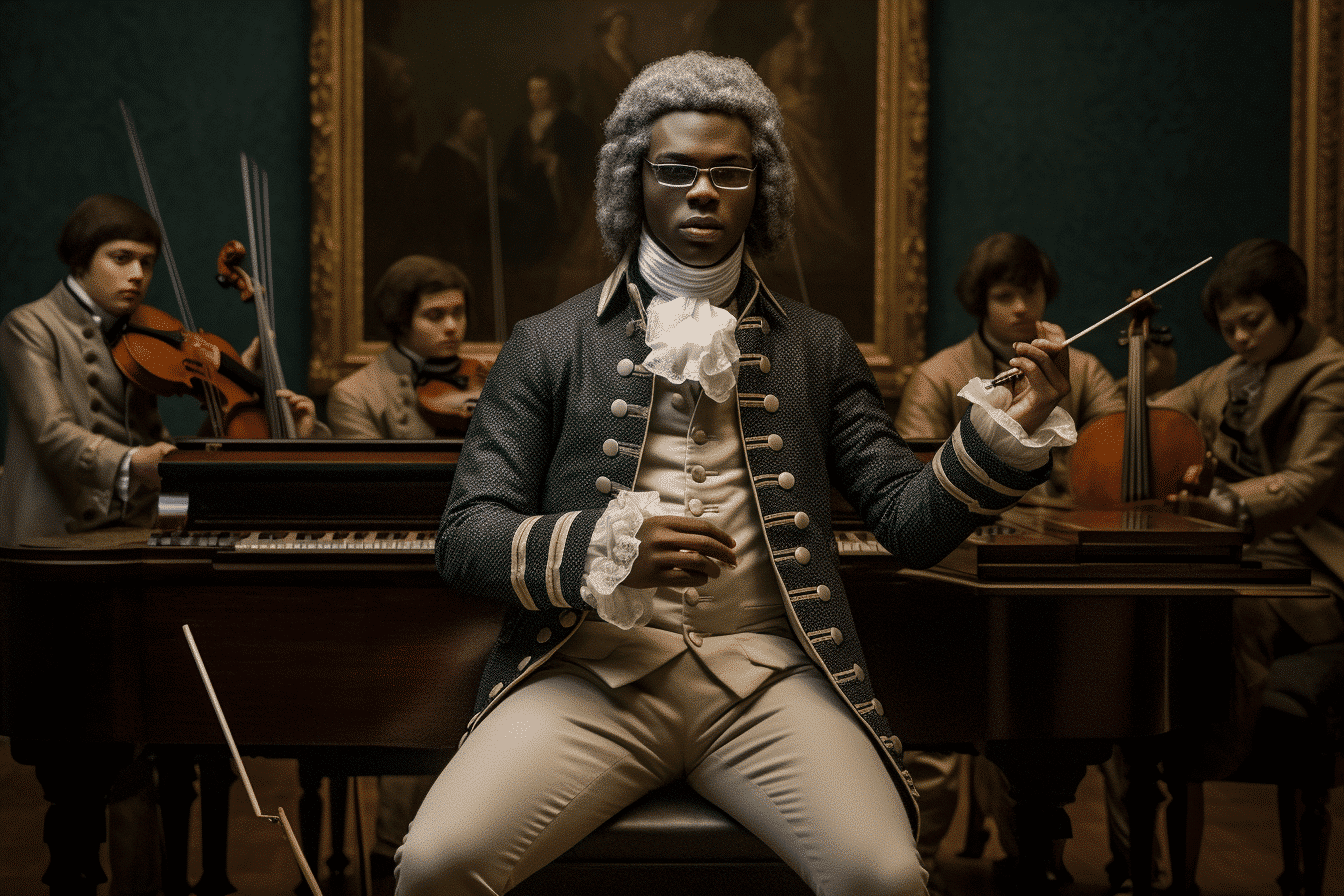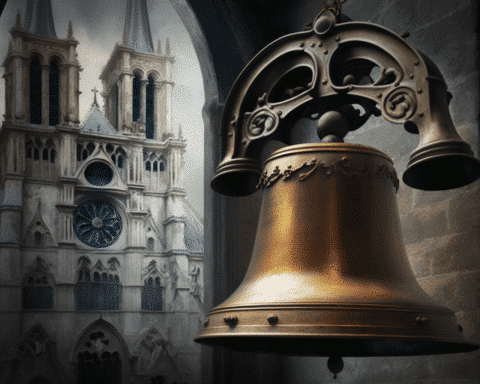Not everyone may be familiar with the name Joseph Bologne, also known as Chevalier de Saint-Georges, but his fascinating life and achievements are garnering attention.
An 18th-century Afro-Caribbean historical figure, Bologne is widely recognized for his musical prowess. Known as the “Black Mozart,” he stood out for his colourful, virtuosic compositions and unparalleled talent on the violin. Beyond his music, he was the son of an enslaved woman, an accomplished fencer, a notorious charmer, a trailblazing conductor, and a close friend of Marie Antoinette.
His dramatic life story has been waiting for its moment in the spotlight. Now, more than two centuries after his death, Bologne’s extraordinary journey is capturing mainstream attention with “Chevalier,” a film inspired by his life. Additionally, his forgotten works are being rediscovered and championed by some of classical music’s most influential figures.
This mini-renaissance is a testament to the beautiful results of preserving the narratives of diverse and under-acknowledged artists, a treat for history and music enthusiasts or anyone who enjoys a captivating tale.
Bologne’s Sparkling Legacy and Life
Bologne is the first composer of colour to gain prominence in the European classical scene. Born in the Caribbean in 1745 to an enslaved Black woman and a White French plantation owner, he moved to France at a young age under his father’s care, where he honed his swordsmanship and violin skills, both of which defined his future.
Bologne was a man of contrasts and firsts: He was the first Black conductor of Paris’ esteemed Le Concert Olympique and one of the first Black men to lead a French army regiment. Despite his popularity in social and romantic circles, thanks to his charm and fencing skills, he faced racism. France maintained legal slavery until 1794, and “Le Code Noir,” an edict dictating a slave’s life, also fostered discrimination against free people of colour.
Nonetheless, Bologne’s noble lineage provided some protection from this prejudice. He had influential friends, secured a position as a musician in Marie Antoinette’s court, and won the admiration of US President John Adams, who once deemed him “the most accomplished man in Europe.”
Yet, his White contemporaries are more prominently remembered by history.
“Chevalier was wrongly referred to as the ‘Black Mozart,'” said Bill Barclay, the then-music director at Shakespeare’s Globe in 2019. “In many cases, it should be Mozart referred to as the ‘White Chevalier.'”
Barclay designed a musical centred on Bologne’s life that debuted at Tanglewood in Lenox, Massachusetts, in 2019. It is among the recent efforts to share Bologne’s story with a broader audience. The movie “Chevalier,” released this past Friday, showcases Bologne in the glitz and drama typical of a first-rate historical film.
Kelvin Harrison Jr., who portrays Bologne in the film, found it thrilling to see how this “quick, witty, funny, and cool” personality from the 18th century resonated with modern times.
“He was unapologetic 100% of the time,” Harrison explained to ABC7 Los Angeles. “He was like the Michael Jackson of his time. It was fun tracing that back to the 1700s and discovering its contemporary relevance.”
Current Musicians Pave the Way for Chevalier’s Immortality
While the film and Harrison’s portrayal breathe new life into Bologne’s story, efforts are also being made by classical music luminaries to ensure his musical legacy lives on.
Indeed, music is the most enduring aspect of Bologne’s life. Performing music provides a unique opportunity to revive life in a way that no film can truly capture. With every bow stroke, the present returns to the past, bringing art and the artist’s joy, pain, struggles, and victories.
World-renowned German violinist Anne-Sophie Mutter understands the profound impact of these moments.
“Music allows us to live in a parallel universe without any mental harm,” she commented during a phone interview in February, a mix of pragmatism and mysticism.
Mutter utilizes her fame as one of the most renowned living violinists to promote wider access to classical music and push for a more diverse repertoire.
Earlier this year, Mutter and her group of young musicians, Mutter’s Virtuosi, undertook a limited international tour, which included Bologne’s vibrant “Violin Concerto in A Major.”
As Mutter delved into Bologne’s music, she found glimpses of his life within his compositions.
“I am thrilled that he is receiving more recognition,” she expressed. “His compositions were remarkably inventive and ahead of their time. He was a superb athlete, and that shows in his music.”
“Your relationship with a piece of music has many layers, like wine,” she continued. “As you peel back the layers, you see more clearly and it seeps into your system. Then you can free yourself from the technical demands of the piece. That’s when you make music.”
Bologne and Mutter, artists separated by centuries and circumstances, connect when Mutter and her ensemble perform Bologne’s compositions. The connection between their worlds tightens, resonating with incredible clarity.
Historically, these magical opportunities to evoke the past in classical music have largely been reserved for White men. That’s gradually changing as more artists and ensembles include works by female composers and composers of colour.
“Regrettably, talent alone doesn’t always garner the appreciation it deserves,” Mutter said. “We see that in the repertoire selections that have become canonized. We must scrutinize and appreciate the quality of work with more passion. There’s a lot to discover.”
The push to expand the appreciation of classical music isn’t just an abstract nod toward diversity. It’s a way to immortalize artists from the past and inspire future artists. Through listening, we can choose what’s worth remembering, which ideas remain relevant, and which stories deserve to be kept alive.
Through film and music, Joseph Bologne’s legacy demonstrates that there is always time for a revival.
In essence, the life and legacy of Joseph Bologne are being resurrected on the stage and screen, sending ripples through the annals of history and classical music. His story illuminates a potent narrative about a trailblazing Afro-Caribbean composer, a testament to human resilience and the unyielding quest for artistic expression. As we step forward into a future where diversity in all its forms is increasingly celebrated, the revived appreciation for Bologne reminds us that true talent can never be silenced, and it’s never too late to correct historical oversights.




